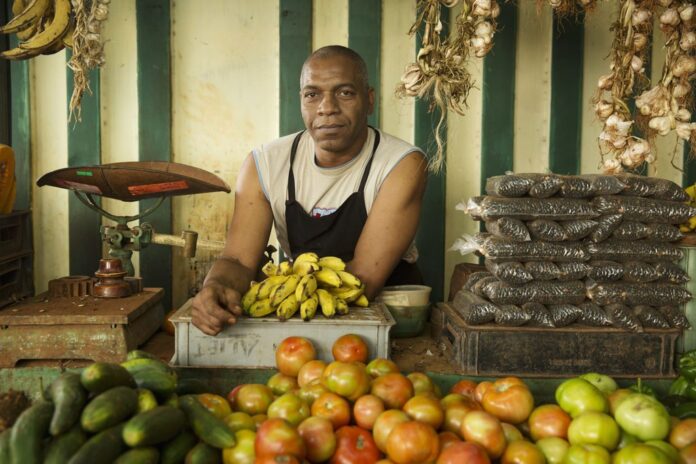
Business owner in Cuba: “We understand that there really is a crisis in the country and that a digital payment system is needed, but it’s the company’s money.”
By Cubaencuentro
HAVANA TIMES – When the Cuban Government announced in early August that it was taking a leap towards electronic payment systems and a “cash-free” society, red flags began to appear for emerging small businesses on the Caribbean Island, Reuters news agency reports.
The most alarming thing for many budding business owners was the 5000-peso maximum daily withdrawal limit, approximately 20 USD, for businesses, a measure that the Government said was intended to steer Cubans towards digital transactions, by bank transfer, online payments and using bank cards.
These changes were necessary to stop cash shortages, officials at the Cuban Central Bank said, while the rapid drop in the peso’s value and prices increasing also contributed to draining bank reserves and ATMs.
“The demand for cash vs. deposits in cash is growing, and it doesn’t support the work of bank branches,” Alberto Quiñones, vice-president of the Cuban Central Bank said in a TV appearance.
Even so, changes have been a hard pill for Cubans to swallow, says Yulieta Hernandez, the founder and manager of “Pilares Construccion”, a private company located in Havana that currently employs 60 people.
“We understand that there really is a crisis in the country and that a digital payment system is needed, but it’s the company’s money,” Hernandez said when pointing out that her business had already switched to the digital payment ssystem, even though she often needs cash to pay for emergencies at work.
Even before these new restrictions, Cuban business owners were facing what might seem unsurmountable obstacles, such as blackouts and Internet cuts, fuel shortages and no legal way to change large sums of local currency into USD, which are needed to import merchandise from abroad.
She says that three days after the rules were implemented came the bad news: many suppliers began to announce that they weren’t accepting bank transfers, only cash from now on because they were afraid they’d lose access to the paper cash they needed to operate, the exact opposite of what the law wants to do.
This has put companies like Pilares Construccion in a tough spot. The company needs cash to operate, but it is forbidden from withdrawing enough cash from its local accounts.
“Right now, the effect has been paralysing,” Hernandez said, who pointed out that many business owners were already freezing investments amidst growing uncertainty.
“People are waiting to see how (the law) will be implemented,” she added.
Business owners that spoke to Reuters said that measures could dampen their enthusiasm to invest in private companies that sell food, repair cars, build houses and offer a range of goods and services that state-led companies have lost heart for.
Cuban officials are now fighting to start implementing these changes which – according to them – will be implemented over a six-month period.
In Santiago de Cuba, approximately 900 km east of Havana, the Cuban Government has called on experts this week to take to the streets and train people on the basic concepts of payments using a cellphone.
Private enterprise in Cuba, beyond renting out rooms to tourists or some small-scale services, made a comeback in 2021, after decades of being prohibited and eliminated by the late former president Fidel Castro. Ever since then, the Cuban Government has given a green light for the creation of thousands of small businesses.
This represented a great cultural shift for many Cubans born after Castro’s Revolution in 1959, Leonardo Rodriguez says, who runs Kaibocu, a company based in Havana that is dedicated to selling processed foods and agricultural products.
Rodriguez said that him and other business owners had begun to use digital payment systems before the new measures were announced to meet fiscal regulations that had evolved with the growing private sector.
“(Cubans) have been doing business on the street for many years, without ever knowing what a tax system is,” Rodriguez said in an interview with Reuters in Havana.
“We aren’t used to a tax system, to declaring sales, to declaring revenue. Cubans aren’t prepared (…) these are very new concepts,” he added.
Ronald Venero, a 34-year-old fruit and vegetable seller, said that the majority of farmers that sell goods aren’t accepting payments via digital devices.
“Farmers negotiate their produce in cash. If you tell them you’re going to pay by card or by bank transfer, they say no,” he pointed out on a main street in Havana.
Read more from Cuba here on Havana Times




